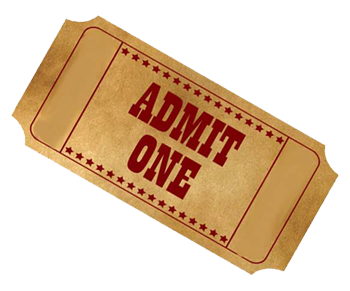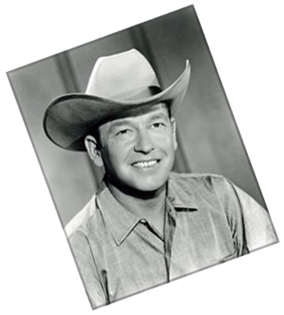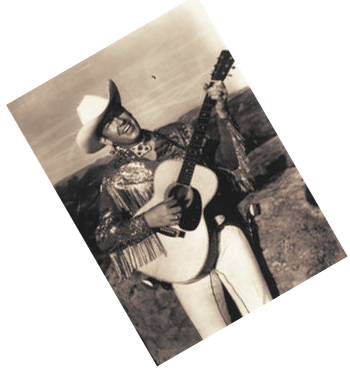



WILLCOX Cowboy Hall of Fame inductees
H.L. "BUTCH" HARRIS (1)
1905-1981
1986 COWBOY HALL OF FAME POSTHUMOUS AWARD
H.L. "Butch" Harris had a tough life, the type of life that could have easily festered into a "poor me" attitude. Yet anyone who knew Butch knows such a description couldn't be further from the truth about him.
"My Dad never once complained about the life he had," says his son, Dave Harris. Dave feels it was his father's optimism and ability to laugh at life's situations, which made him a wise choice as a 1986 Cowboy Hall of Fame posthumous inductee. People who knew Butch undoubtedly agree with him.
The oldest of seven children, Harris was born December 6, 1905. And although his parents were from Oklahoma, Harris was born in Lethbridge, Alberta, Canada. His father was running cattle there at the time. He was six months old when his family returned to Oklahoma. He was two weeks into his freshman year in high school when a drastic tumble in cattle prices caused his father to go bankrupt, forcing Harris, as the eldest child in the family, to quit school in order to help support his brothers and sister. The family moved to Texas and although he'd grown up in the ranching environment, Harris took on work in the Texas oil fields and did other odd jobs to earn a living.
Harris met his wife in Oklahoma where she was teaching school. In May of 1929 he returned to Oklahoma from Texas to marry Laura. They would have three children: Dave, born in 1930, Shirley, born in 1932 and Lea born in 1938. After their marriage, things were still tough in the ranching business, but Harris was able to pick up various jobs around Rankin, Texas. Dave describes the ranching jobs his father did at the time as "dirty work," but well-paying considering it was the depression.
The young Harris couple moved from Rankin to Midland, Texas where Harris was able to buy a gas station and their very first house. It was really more of a cabin, explains Dave. Harris' long awaited return to ranching came in 1941 when the Foy Proctor company offered him a job on one of their ranches in Seminole, Texas. They were there a year before being transferred by Proctor to the 187-section Three Links Ranch outside Willcox. The ranch was a 3,000 head cow/calf operation. Harris was ranch manager for four years until going to work for himself in 1946, initially leasing the Nitter Ranch.
In 1952 the Harris' bought the Meyer home, which is where Dave and his family still live today. Dave describes the home as the "first and only place Dad ever really considered to be home."
In 1952 the Harris' bought the four-section Nan Parker Ranch and leased the neighboring 18-section Harper Ranch. The down payment for the Parker Ranch came from bonus money Harris received after the untimely death of their youngest son, Lee. Lee had signed to play baseball for the Pittsburgh Pirates but died the summer after graduating from high school. Dave says it is because of the memory of Lee and where the money came from to purchase the Parker Ranch that the Harris' never sold the ranch. "Dad was offered four and five times what he paid for the ranch, but in memory of Lee, could never think of selling it. "Harris began building the Willcox Packing House while Dave served in the Korean War. It was completed, or rather opened in November 1952, two months after Dave was released from the military. Dave says they weren't really ready to open the plant when they did; but they were highly encouraged to open it when Lencho Hurtado came by with a steer he'd killed and needed butchered. My dad told Lencho we weren't open for business yet and Lencho says, "Oh yes you are. I'm not taking this animal back after carting it here." So we opened that day says Dave.
It wasn't long after the packing house's grand opening that Harris told Dave his health was not good enough to be running the packing business and asked Dave to take over the operation of it. Dave feels that reason was not the truth, however. "Dad built the packing house to help his boy. That's why he really did it. He wasn't so sick. He returned to working the ranch after I took over the packing house."
Eventually, Harris bought the Harper Ranch he'd been leasing for so many years. His health did begin to get worse though, and although he could have had operations to prolong his life, he told the doctor he didn't want any part of the surgery if afterwards he still couldn't drive his truck or get on a horse. "When he was told he only had a couple more years to live he began to get his affairs in order so Mom wouldn't have to worry about such things once he was gone," recalls Dave. However, Mrs. Harris died in April of 1981, preceding Mr. Harris by seven months in death.
Harris was active in the Sheriffs Posse and "anything to do with cattle," according to Dave. "I'm sure some people will remember Dad for the dry wit he had and his story telling style. Dad would start a story at the beginning of supper and you'd be lucky if he'd finished it by dessert," says Dave.
Dave describes his Father as a compassionate man who gave his best to his family. Dave admits to thinking at times that his Dad "was a mean old rascal" but that he knows now everything his Father did was out of love for his children.
Dave doesn't have to think for a minute to recall what he feels was the most memorable Father-son story between him and his Father. "It was just after Dad had his heart operation, and I was trying unsuccessfully to pen some cattle at the ranch. I was having a heck of a time and just couldn't get the animals penned. Dad drove up in his truck with his ever-present cigar in mouth, he rolled down the truck window, observed the situation for a bit and then said, "Son, if you're gonna work cattle, you gotta be smarter than they are." He didn't get out and help me; he just rolled his window back up and drove away. But he made me stop and rethink my strategy and I did eventually get those cattle penned. I've thought back on those words of wisdom many times since that frustrating day." H.L. "Butch" Harris died December 31, 1981.





